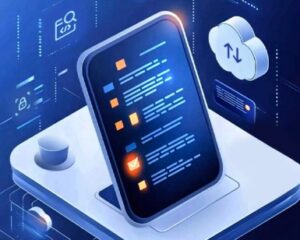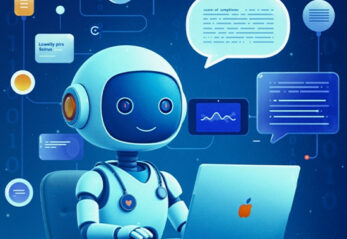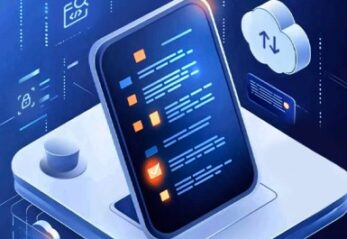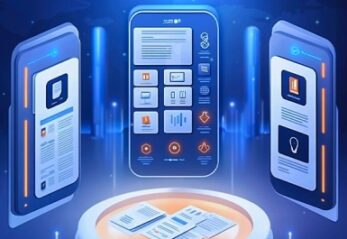Nearly 80 percent of healthcare data is unstructured, from clinical notes and EHRs (Electronic Health Records) to pathology scans and research PDFs. AI projects depend on turning this information into structured, usable insight, but generic models often miss clinical language and fail to generate outputs that can be traced or audited.
This gap is addressed by Healthcare GPT, a specialized GPT for healthcare tuned with medical data to interpret clinical terminology and context. Unlike general-purpose chatbots, it reduces errors by aligning answers to domain knowledge, updates its medical understanding daily, and produces responses with inline citations that can be verified against source material.
Designed for regulated use, it belongs to a class of healthcare-specific AI models. Training on medical text improves accuracy, built-in safeguards strengthen compliance, and enterprise validation ensures consistent performance at scale.
This article explores how Healthcare GPT transforms medical data processing, how it’s different from general-purpose AI, and why John Snow Labs is the trusted partner for deploying it safely in a highly regulated healthcare environment.
Key Features of Healthcare GPT
For leaders, the central question is whether a healthcare GPT can deliver reliable performance, maintain compliance and scale across enterprise workflows. The following features outline what a healthcare GPT must provide to meet those demands.
Clinical Dialogue with Checkable Sources
A clinical GPT needs to speak in medical vocabulary and show its evidence. Healthcare GPT generates answers with inline citations and links to the supporting guidelines or passages. Reviewers can verify the reasoning without leaving their workflow, keeping conversations fast while ensuring every answer is traceable and auditable.
Literature Review That Keeps Pace with Operations
A medical GPT should be able to transform how teams manage the flow of new research. Instead of manually scanning thousands of studies, the model should search curated medical knowledge bases and link every claim to its source.
Content needs to be refreshed on a regular schedule, so findings reflect the most recent evidence. Results must appear in organized views that highlight key details, data points, and study criteria, making it easier to track relevance and compliance.
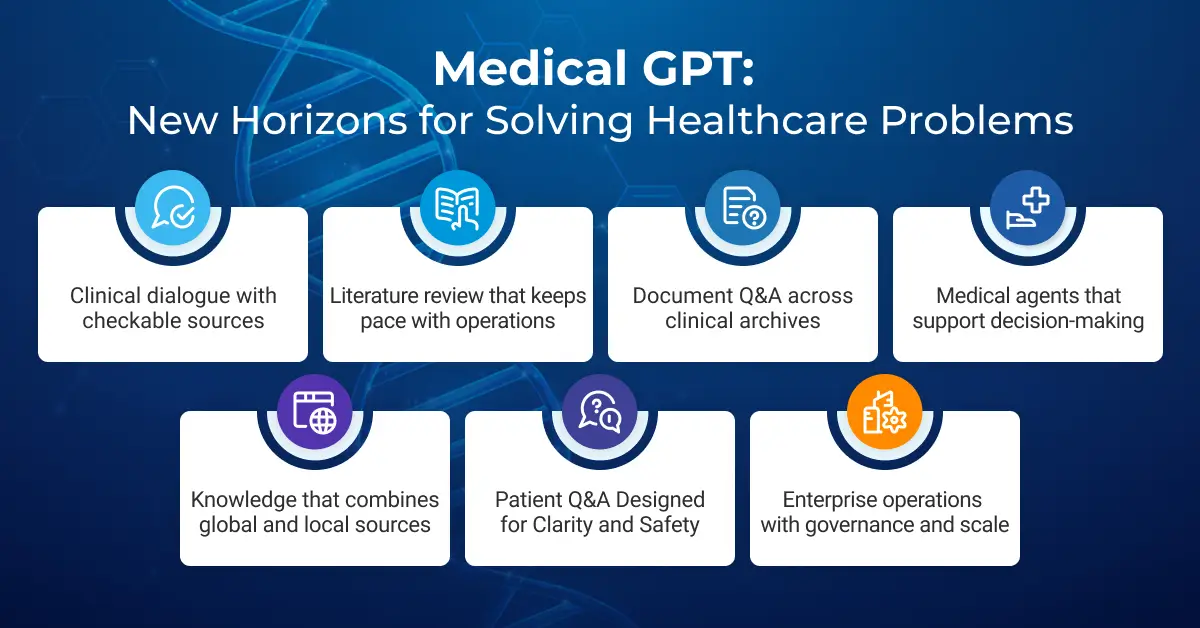
Document Q&A Across Clinical Archives
Healthcare GPT can answer specific questions about charts, referrals, and multi-page reports. It combines retrieval across archives with long-context reading to deliver precise responses. Each answer is tied to the relevant page or section, reducing manual hunting and preserving auditability.
Medical Agents That Support Decision-Making
Healthcare GPT should go beyond chat. It should support task-oriented agents that retrieve records, extract key details, and draft grounded summaries. Clinicians should remain in the loop to review results. This pattern is essential for supporting clinical decision support with AI for risk reviews or treatment planning.
Knowledge That Combines Global and Local Sources
A healthcare GPT must combine up-to-date medical references with private resources such as institutional guidelines, care pathways, formularies and SOPs. This integration unites global research with local policy and ensures answers remain scientifically accurate while staying consistent with organizational standards and payer requirements.
Enterprise Operations with Governance and Scale
A healthcare GPT must run inside secure infrastructure, giving organizations full control over sensitive information. It should process data locally without relying on external sharing or internet connections, and it must comply with standards such as HIPAA and GDPR to fit seamlessly into regulated environments.
On top of privacy and compliance, the platform also needs to support the mechanics of enterprise use. Role-based access, team workspaces and single sign-on keep operations governed and accountable. APIs connect these controls to existing workflows, enabling both batch and real-time requests.
Patient Q&A Designed for Clarity and Safety
Generative AI for answering patient questions must explain conditions, preparation steps and discharge instructions in plain, accessible language. Each response should be tailored to the patient’s reading level and point to supporting evidence so patients know the guidance is trustworthy.
When questions are unclear or sensitive, the system must escalate them to clinical staff, ensuring patients receive safe and reliable answers while clinicians devote their time to the cases that need their expertise.
Differences Between Chat GPT and Healthcare GPT
General-purpose chat models are built to handle broad conversations across many topics, aiming for fluid, human-like dialogue. A clinical GPT is developed to deliver accurate medical answers.
The main difference between both large language models is in how either model is trained and evaluated, how outputs can be verified, and how safely they can be deployed in production.
Answers Supported by Evidence
General-purpose models like ChatGPT generate fluent answers but rarely cite sources, which can lead to misrepresentation and extra work for reviewers who must confirm each response. A medical GPT instead provides references to the guidelines, studies or passages it draws on, so reviewers can verify claims without leaving the workflow.
Its knowledge bases update on a regular schedule and can incorporate internal resources such as institutional guidelines, formularies and care pathways. This makes outputs both current and aligned with local policy, giving organizations a more trustworthy option for regulated environments.
Governance, Privacy and Deployment Control
Most general-purpose chat models run only as hosted endpoints, leaving little control over data. Healthcare AI solutions must comply with HIPAA and give organizations the ability to choose where and how models run.
Domain-specific systems offer role-based access and single sign-on, with deployment options that include SaaS, on-premises or air-gapped infrastructure. This flexibility keeps sensitive workloads such as patient records or biomedical research within secure environments; an assurance general models cannot provide at the same depth.
Integrated into Clinical and Operational Workflows
Healthcare GPT platforms are built to support established processes rather than act as stand-alone chat tools. They can answer document-based questions across EHR notes and multi-page PDFs, conduct literature reviews with in-line citations and run task-based agents that retrieve, extract and summarize information for clinician review.
This design enables clinical decision support with AI that is auditable, explainable and ready for production. Features such as continuously updated knowledge, governed access, API integration and flexible deployment ensure outputs remain transparent and compliant.
The Business Need for Medical GPT
Healthcare leaders need systems that can handle the high volumes of unstructured clinical data while meeting strict compliance requirements. The following use cases show how medical GPT supports real-world clinical and operational work.
Faster Reviews through Summarization of Clinical Encounters
Hospitals generate thousands of progress notes, discharge summaries, radiology reports, and pathology findings every day. Reviewing these documents is time-consuming and often repetitive.
Healthcare GPT creates concise summaries with direct links to the source text. This reduces the need for multiple reviewers to scan the same record or for clinicians to re-check details manually. Teams spend less time on low-value work and more time on patient care, while decisions are made on consistent, traceable evidence.
Trusted Answers from Clinical Notes and Biomedical Research
A Medical Chatbot powered by domain-tuned models can answer questions about diagnoses, test results, treatment guidelines, and study outcomes. Each answer cites the original source so reviewers can validate the reasoning instantly, avoiding the back-and-forth often required by generic chatbots.
Clinicians gain trusted information without adding manual verification steps, which improves both efficiency and audit readiness.
Structured Insights through Medical Information Extraction
Unstructured notes often contain clinically significant information such as diagnoses, procedures, biomarkers, and imaging findings, yet these details are difficult to analyze at scale. A healthcare GPT can be applied to identify and organize this information, converting free text into structured outputs that connect with existing systems.
Once structured, the data can support AI-driven healthcare automation by aligning with clinical guidelines, informing treatment planning, identifying trial candidates, or guiding research. The result is a workflow that is easier to measure, repeat, and refine, with less reliance on manual chart review.
Patient-Facing Q&A That Reduces Escalations
For providers and health plans, patient interactions are frequent, costly, and critical. Generative AI for answering patient questions enables chatbots to explain conditions, preparation steps, and discharge instructions in plain language. When a question is ambiguous or sensitive, the system escalates it to staff.
Doing so prevents misinformation while still reducing the volume of basic inquiries. Patients receive clear and consistent guidance, and clinicians are only drawn in when their judgment is needed, freeing them up for more complex cases.
Why Choose John Snow Labs for Healthcare GPT Development
Selecting a medical GPT comes down to lowering delivery risk while ensuring data security, clinical accuracy and smooth integration with existing systems. John Snow Labs delivers this through tested performance, options for customization, controlled deployment and enterprise-grade support.
Proven Track Record in Healthcare AI
John Snow Labs runs healthcare language models in production today, not just in research labs. The company trains and fine-tunes dozens of models each week, benchmarks against every new public release and validates outputs with physician-annotated data.
On the OpenMed benchmark, its models score an average of 86.2, higher than GPT-4o (82.9) and Med-PaLM-2 (84.1). In blind tests with practicing doctors, the models were chosen more often for accuracy, relevance and clarity: 88% more often for clinical note summarization, 46% more often for information extraction and 175% more often for biomedical Q&A.
For healthcare leaders, this means less time correcting errors, faster reviews and lower risk when deploying AI into real clinical workflows.
Tailored to Your Domain
Every healthcare system has its own guidelines, protocols and payer rules. John Snow Labs offers custom healthcare AI development. You can adapt its models with your data, whether that means fine-tuning on proprietary notes or adding private knowledge bases such as pathways, formularies and SOPs.
Guardrails make sure outputs follow both published evidence and local policies. Teams can validate performance with healthcare-specific benchmarks, ensuring the model reflects your organization’s language and standards of care.
Deployment Designed for Regulated Environments
Protecting patient data is non-negotiable. John Snow Labs’ models can run fully on-premises or in a private cloud so protected health information never leaves your control. All processing happens locally with no external data sharing.
Built-in support for HIPAA and GDPR compliance, along with features like role-based access and single sign-on, ensures smooth governance and easier audits. These safeguards keep sensitive workloads safe and compliant.
Enterprise Scale and Integration
Healthcare projects need technology that grows with demand. John Snow Labs’ platform integrates directly with your existing data pipelines through APIs for both real-time and batch use.
Team workspaces enable collaboration under controlled access. The infrastructure can scale from thousands to millions of documents without re-platforming. Hardware and cloud optimization keep models fast and cost-efficient as usage expands, while managed services maintain consistent performance.
Faster Results with Lower Cost
Implementing a proven healthcare LLM can be done in weeks rather than the 12 to 18 months often needed to build one from the ground up. Independent analyses show that using an existing model can reduce costs by as much as 99 percent.
Pre-built modules for de-identification, entity extraction, and NLP in healthcare further accelerate delivery of high-value use cases such as medical chatbots, clinical note summarization, and risk-coding assistants. This combination of speed, efficiency, and compliance enables leaders to demonstrate ROI quickly while expanding adoption with confidence.
Get Started with Medical GPT
Adopting healthcare GPT enables faster documentation, reliable literature-backed insights, patient-friendly communication, and compliance-ready audit trails. These benefits translate into shorter review cycles, reduced operational burden, and measurable value across clinical, payer, and life sciences workflows.
To explore how a tailored clinical GPT can fit your organization’s needs, contact us for a consultation. We will help you define the right deployment path, customization options, and integration strategy to deliver medical GPT securely and at scale.

























